Hyundai Tucson vs VW Golf Variant - Differences and prices compared
Costs and Efficiency:
Price and efficiency are often the first things buyers look at. Here it becomes clear which model has the long-term edge – whether at the pump, the plug, or in purchase price.
VW Golf Variant has a slightly advantage in terms of price – it starts at 26100 £, while the Hyundai Tucson costs 30600 £. That’s a price difference of around 4496 £.
Fuel consumption also shows a difference: Hyundai Tucson manages with 1 L and is therefore significantly more efficient than the VW Golf Variant with 4.30 L. The difference is about 3.30 L per 100 km.
Engine and Performance:
Under the bonnet, it becomes clear which model is tuned for sportiness and which one takes the lead when you hit the accelerator.
When it comes to engine power, the VW Golf Variant has a evident edge – offering 333 HP compared to 252 HP. That’s roughly 81 HP more horsepower.
In acceleration from 0 to 100 km/h, the VW Golf Variant is convincingly quicker – completing the sprint in 4.80 s, while the Hyundai Tucson takes 7.90 s. That’s about 3.10 s faster.
In terms of top speed, the VW Golf Variant performs a bit better – reaching 250 km/h, while the Hyundai Tucson tops out at 204 km/h. The difference is around 46 km/h.
There’s also a difference in torque: VW Golf Variant pulls minimal stronger with 420 Nm compared to 379 Nm. That’s about 41 Nm difference.
Space and Everyday Use:
Whether family car or daily driver – which one offers more room, flexibility and comfort?
Seats: offers more seating capacity – vs .
In curb weight, VW Golf Variant is a bit lighter – 1366 kg compared to 1542 kg. The difference is around 176 kg.
In terms of boot space, the Hyundai Tucson offers minimal more room – 620 L compared to 611 L. That’s a difference of about 9 L.
In maximum load capacity, the Hyundai Tucson performs slight better – up to 1799 L, which is about 157 L more than the VW Golf Variant.
When it comes to payload, VW Golf Variant barely noticeable takes the win – 547 kg compared to 545 kg. That’s a difference of about 2 kg.
Who wins the race?
The Hyundai Tucson proves to be wins the duel decisively and therefore becomes our DriveDuel Champion!
Hyundai Tucson is the better all-rounder in this comparison.
 @ Hyundai Motor Company
@ Hyundai Motor Company
Hyundai Tucson
Costs and Consumption
View detailed analysis
Engine and Performance
View detailed analysis
Dimensions and Body
View detailed analysis
Hyundai Tucson
Hyundai Tucson marries bold, sculpted looks with a clever, roomy cabin that feels smarter than its price tag suggests. It's composed on the road, easy to live with day-to-day, and a sensible choice for buyers who want SUV style without the showroom theatrics.
details @ Hyundai Motor Company
@ Hyundai Motor Company
 @ Hyundai Motor Company
@ Hyundai Motor Company
 @ Hyundai Motor Company
@ Hyundai Motor Company
 @ Hyundai Motor Company
@ Hyundai Motor Company
 @ Hyundai Motor Company
@ Hyundai Motor Company
VW Golf Variant
The Golf Estate packs Volkswagen's familiar poise into a practical, grown-up estate that quietly makes everyday life easier without shouting for attention. It's clever, comfortable and roomy enough for weekend kit or family chaos, offering smart packaging and refined manners that make it a sensible and surprisingly stylish choice for buyers who need space but don't want a van.
details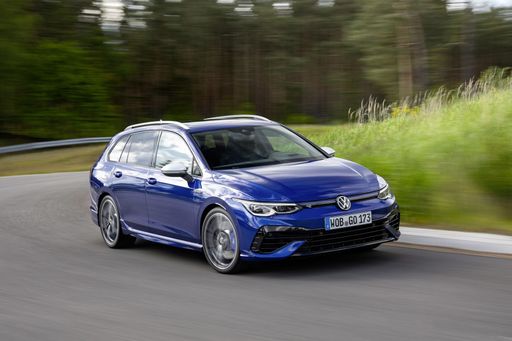 @ Volkswagen AG / VW Media
@ Volkswagen AG / VW Media
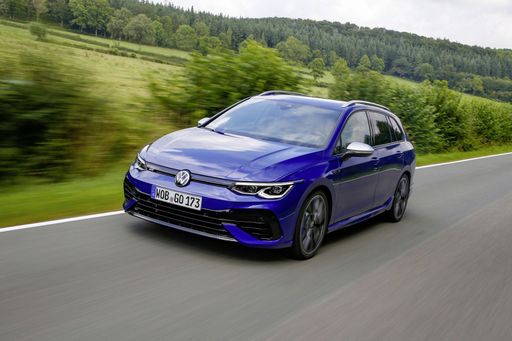 @ Volkswagen AG / VW Media
@ Volkswagen AG / VW Media
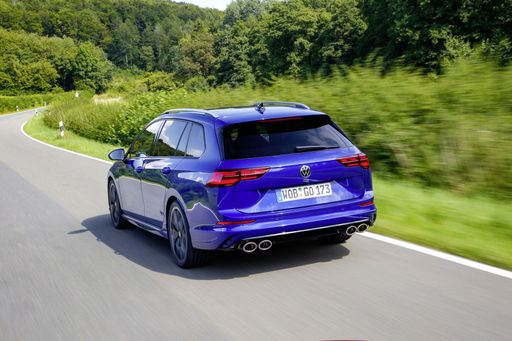 @ Volkswagen AG / VW Media
@ Volkswagen AG / VW Media
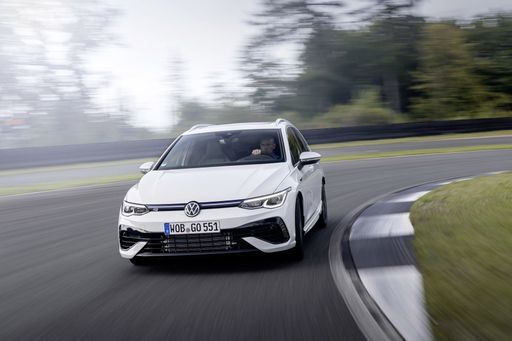 @ Volkswagen AG / VW Media
@ Volkswagen AG / VW Media
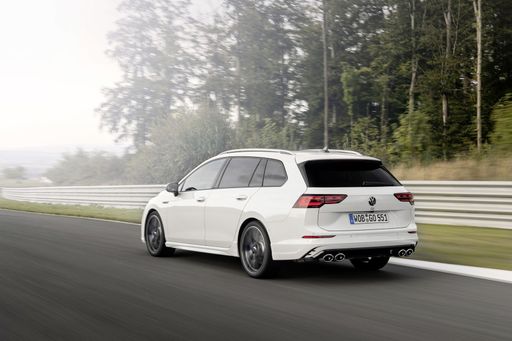 @ Volkswagen AG / VW Media
@ Volkswagen AG / VW Media
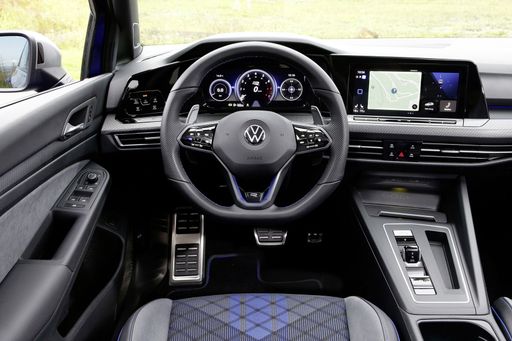 @ Volkswagen AG / VW Media
@ Volkswagen AG / VW Media
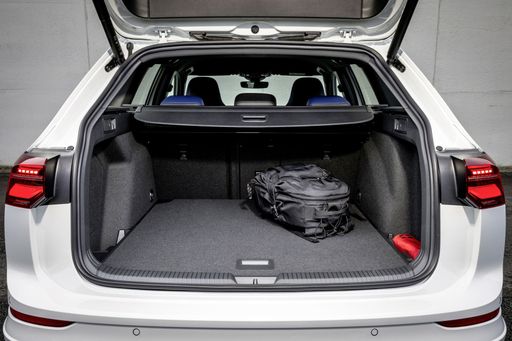 @ Volkswagen AG / VW Media
@ Volkswagen AG / VW Media
 @ Hyundai Motor Company
@ Hyundai Motor Company
|
 @ Volkswagen AG / VW Media
@ Volkswagen AG / VW Media
|
|
|
|
Costs and Consumption |
|
|---|---|
|
Price
30600 - 46300 £
|
Price
26100 - 48700 £
|
|
Consumption L/100km
1 - 7.6 L
|
Consumption L/100km
4.3 - 8.2 L
|
|
Consumption kWh/100km
-
|
Consumption kWh/100km
-
|
|
Electric Range
64 - 70 km
|
Electric Range
-
|
|
Battery Capacity
-
|
Battery Capacity
-
|
|
co2
22 - 172 g/km
|
co2
114 - 185 g/km
|
|
Fuel tank capacity
42 - 54 L
|
Fuel tank capacity
45 - 55 L
|
Dimensions and Body |
|
|---|---|
|
Body Type
SUV
|
Body Type
Estate
|
|
Seats
5
|
Seats
5
|
|
Doors
5
|
Doors
5
|
|
Curb weight
1542 - 1889 kg
|
Curb weight
1366 - 1621 kg
|
|
Trunk capacity
546 - 620 L
|
Trunk capacity
611 L
|
|
Length
4510 - 4535 mm
|
Length
4631 - 4651 mm
|
|
Width
1865 mm
|
Width
1789 mm
|
|
Height
1650 mm
|
Height
1462 - 1487 mm
|
|
Max trunk capacity
1721 - 1799 L
|
Max trunk capacity
1624 - 1642 L
|
|
Payload
523 - 545 kg
|
Payload
489 - 547 kg
|
Engine and Performance |
|
|---|---|
|
Engine Type
Diesel MHEV, Plugin Hybrid, Petrol, Full Hybrid
|
Engine Type
Petrol MHEV, Petrol, Diesel
|
|
Transmission
Automatic, Manuel
|
Transmission
Automatic, Manuel
|
|
Transmission Detail
Dual-Clutch Automatic, Automatic Gearbox, Manual Gearbox
|
Transmission Detail
Dual-Clutch Automatic, Manual Gearbox
|
|
Drive Type
Front-Wheel Drive, All-Wheel Drive
|
Drive Type
Front-Wheel Drive, All-Wheel Drive
|
|
Power HP
136 - 252 HP
|
Power HP
116 - 333 HP
|
|
Acceleration 0-100km/h
7.9 - 11.6 s
|
Acceleration 0-100km/h
4.8 - 10.5 s
|
|
Max Speed
180 - 204 km/h
|
Max Speed
202 - 250 km/h
|
|
Torque
250 - 379 Nm
|
Torque
220 - 420 Nm
|
|
Number of Cylinders
4
|
Number of Cylinders
4
|
|
Power kW
100 - 185 kW
|
Power kW
85 - 245 kW
|
|
Engine capacity
1598 cm3
|
Engine capacity
1498 - 1984 cm3
|
General |
|
|---|---|
|
Model Year
2024 - 2025
|
Model Year
2024 - 2025
|
|
CO2 Efficiency Class
E, B, F, D
|
CO2 Efficiency Class
D, G, F, C
|
|
Brand
Hyundai
|
Brand
VW
|
What drive types are available for the Hyundai Tucson?
Available configurations include Front-Wheel Drive or All-Wheel Drive.
The prices and data displayed are estimates based on German list prices and may vary by country. This information is not legally binding.
